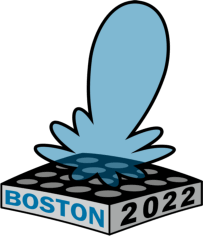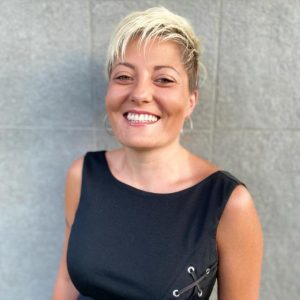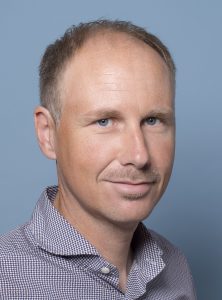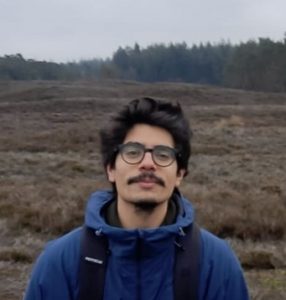2022 IEEE International Symposium
on Phased Array Systems and Technology
Revolutionary Developments in Phased Arrays
11–14 October 2022

Tutorial: Signal Processing for Phased Arrays
Although phased arrays have been around for long time, almost half a century, many digital signal processing techniques were not possible to consider in practical systems until recently. These developments have been fuelled not only by new computation capabilities but also by the huge interest of phased arrays in civil applications such as Massive MIMO, automotive radar and UAV’s navigation. Motivated by the recent advances in hardware for antenna arrays and computational platforms, in this tutorial, we present a digital signal processing perspective of phased arrays as well as a gentle introduction to algorithms for direction-of-arrival (DoA) estimation and digital beamforming.
Differently from hardware-oriented tutorials, in this tutorial we first delve into the modelling of phased arrays from the signal processing perspective, providing the required background to follow advanced array processing algorithms and literature. Then, we present the foundations of classical beamforming and DoA estimation methods that have been successfully employed across differently applications in the last years. Also, we will discuss modern techniques for array processing, beyond classical subspaced-based techniques, e.g., MUSIC, ESPRIT, etc., leveraging optimization theory and sparse signal processing for both regular and sparse phased arrays. Finally, highlights of current developments in phased array signal processing algorithms and future research trends in communications and imaging systems will be presented.

Laura Anitori (TNO, The Netherlands)
Dr. Laura Anitori received her Master of Science degree (cum laude) in Telecommunication Engineering from the University of Pisa, Italy, in 2005 and her Ph.D. degree (cum laude) in Electrical Engineering from the Technical University of Delft, The Netherlands, in 2013.
Since 2007 she works at the Radar Technology department of TNO, The Netherlands. She is currently a senior scientist and program manager of the 4-years Defense funded radar research program. Her work is fully embedded in the “Radar and Integrated Sensor Suite 2030” technology roadmap of the Royal Dutch Navy, which focuses on the development of the radar sensors suite for the next-generation Integrated Air and Missile Defense frigates of the Navy. She is a senior IEEE member, a member of the IEEE AESS Radar System Panel, and a member of the IEEE AESS Board of Governors. She is a member of the European Microwave Association (EuMA) and its Innovation Team. She serves on several technical program committees and student competition committees at international conferences. She Dutch national representative in the NATO’s Sensors and Electronics Technology (SET) Panel. Within the NATO SET Panel, she chaired the research task group SET-236 on “Integrating Compressive Sensing and Machine Learning Techniques for Radar Applications”. Her significant contributions to the SET Panel were recognized with NATO’s Early Career Award in 2018. The Task Group SET-236 also received the 2019 SET Panel Excellence Award, and the 2022 NATO Scientific Excellence Award.

Geert Leus (Delft University of Technology, The Netherlands)
Geert Leus received the M.Sc. and Ph.D. degree in Electrical Engineering from the KU Leuven, Belgium, in June 1996 and May 2000, respectively. Currently, Geert Leus is a Full Professor at the Faculty of Electrical Engineering, Mathematics and Computer Science of the Delft University of Technology, The Netherlands. Geert Leus received the 2021 EURASIP Individual Technical Achievement Award, a 2005 IEEE Signal Processing Society Best Paper Award, and a 2002 IEEE Signal Processing Society Young Author Best Paper Award. He is a Fellow of the IEEE and a Fellow of EURASIP. Geert Leus was a Member-at-Large of the Board of Governors of the IEEE Signal Processing Society, the Chair of the IEEE Signal Processing for Communications and Networking Technical Committee, and the Editor in Chief of the EURASIP Journal on Advances in Signal Processing. Currently, he is the Chair of the EURASIP Technical Area Committee on Signal Processing for Multisensor Systems and the Editor in Chief of EURASIP Signal Processing.Since 2007 she works at the Radar Technology department of TNO, The Netherlands. She is currently a senior scientist and program manager of the 4-years Defense funded radar research program. Her work is fully embedded in the “Radar and Integrated Sensor Suite 2030” technology roadmap of the Royal Dutch Navy, which focuses on the development of the radar sensors suite for the next-generation Integrated Air and Missile Defense frigates of the Navy. She is a senior IEEE member, a member of the IEEE AESS Radar System Panel, and a member of the IEEE AESS Board of Governors. She is a member of the European Microwave Association (EuMA) and its Innovation Team. She serves on several technical program committees and student competition committees at international conferences. She Dutch national representative in the NATO’s Sensors and Electronics Technology (SET) Panel. Within the NATO SET Panel, she chaired the research task group SET-236 on “Integrating Compressive Sensing and Machine Learning Techniques for Radar Applications”. Her significant contributions to the SET Panel were recognized with NATO’s Early Career Award in 2018. The Task Group SET-236 also received the 2019 SET Panel Excellence Award, and the 2022 NATO Scientific Excellence Award.

Mario Coutino (TNO, The Netherlands)
Mario Coutiño (Member, IEEE) received the M.Sc. and the Ph.D. degree (cum laude) in electrical engineering from the Delft University of Technology, Delft, The Netherlands, in July 2016 and April 2021, respectively. Since 2020, he has been a Signal Processing and Machine Learning Researcher with the Radar Technology Department, TNO, The Netherlands. He has held temporally positions with Thales Netherlands, during 2015, and Bang & Olufsen, during 2016. His research interests include array signal processing, signal processing on networks, optimization, numerical linear algebra, machine learning and radar technology. He was the recipient of the Best Student Paper Award for his publication at the CAMSAP 2017 conference in Curacao, the CONACYT excellence scholarship and was a Visiting Researcher with RIKEN AIP and the Digital Technological Center, University of Minnesota, in 2018 and 2019, respectively.
Copyright 2022